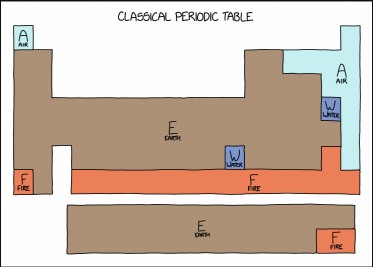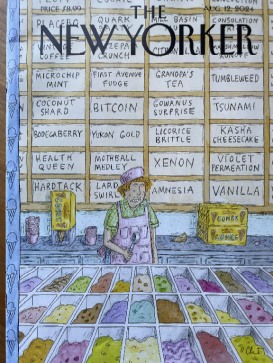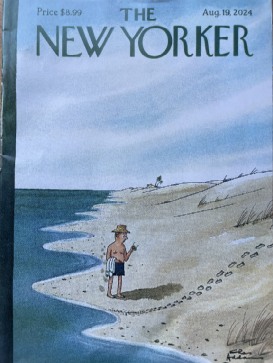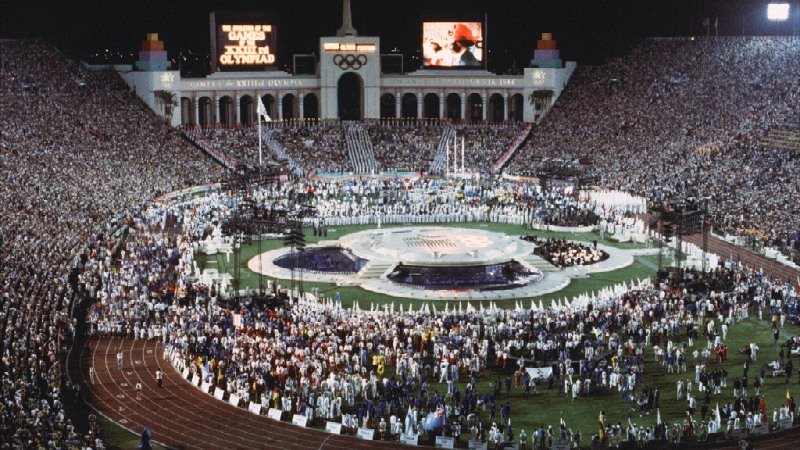|
Archive: August 2024
|
 Here’s a great shot of some unusual action at last weekend’s C-15 North Americans. Wow. That’s my crew Carly and I; we won that race but finished fourth overall in a great regatta at the Santa Barbara Yacht Club. (Perhaps, more to follow.). And yes, we made the front page of Sailing Anarchy, not quite the Rolling Stone but for sailors, close. Here’s a great shot of some unusual action at last weekend’s C-15 North Americans. Wow. That’s my crew Carly and I; we won that race but finished fourth overall in a great regatta at the Santa Barbara Yacht Club. (Perhaps, more to follow.). And yes, we made the front page of Sailing Anarchy, not quite the Rolling Stone but for sailors, close.
Looking at history I see that this date Aug 13 has been a quiet one. I guess on this day I’ve mostly been busy, sailing, traveling, working, or otherwise not blogging. Sorry not sorry. But maybe (?) this will unplug the pipe.
Hope y’all are having a nice summer and will check in again sooon…
|
|

From xkcd, of course. Hehe.
As usual Randall hit a nail on the head, and he comes at it in a way which makes a point... yes, this is a useful periodic table, but no, a little too dumb and not that useful.
This is how I feel about the current trend toward "simple" user interfaces. They're dumbed down past the point of usefulness. The other day I tried Microsoft's "new Outlook", and it's a joke; you can't find anything because all the controls are hidden. Can we go back to good UI design now?
Anyway...
|
|

In my office I have a pile of magazines. Real paper pick em up and read em magazines. The stack is in FIFO order, and depending on how busy or bored I am, it gets deeper or shallower.
Regulars include the Economist - still enjoy it, although the increasingly left bent is tiresome - Fortune, Caltech, Traveler (always fun and getting better), Wired (kind of a legacy, rapidly fading into irrelevance), and of course The New Yorker - I parted from them politically long ago, but enjoy the feature writing and above all the cartoons.
One might ask why I read these as paper, and I'm not sure; I read most books on Kindle, and I have experimented with electronic versions of magazines, but somehow it just doesn't "work". I think paper is more skimmable; I certainly don't ready any mag cover to cover, but rather just pick and chose and read and skip. The heads and subheads are good guides, the callouts helpful, pictures and diagrams are interesting (and cartoons!), and even cool ads might get my attention.
Anyway.

To the top of the stack recently rose the Aug 12 issue of New Yorker, with the title Comedy, an archival issue. They have been doing this a bit; cutting back on staff, they can run an issue with almost entirely recycled content, and readers like me find it interesting. In fact, honestly, it was way more interesting than the "regular" issue from Aug 12. Okay the focus was comedy, but also, there was a characteristic spirit of inquiry has been sadly lacking of late.
The New Yorker's general stance is that it is a giant world out there (including, albeit begrudgingly, the world outside of New York city) filled with people and stories, and it wants to tell you about them. Lately it seems to have morphed into telling you how to think about them, and that doesn't go over as well nor foster that positive spirit.
And so in this issue there is a lot of awesomeness: Notes about Robin Williams and Joan Rivers, rabbi jokes, Girl Scouts, and Buster Keaton, and articles about laughter, Richard Pryor, and the birth of Saturday Night Live, among others. The reviews were cherry picked as well, including Chelsea Handler on late night TV and Barbra Streisand in Funny Girl. I almost did read it cover to cover, and might yet go back.
I guess it's inevitable that an old guy would look back and think "that was a better time", but ... it was :)
|
|


Speaking of The New Yorker, (we were) I've made it to the bottom of my stack, the Aug 26 issue (with a "haha" cover featuring A roller coaster with Harris and Walz going up while Trump and Vance go down ... typical), and I encountered this thoughtful review by Louis Menand of two books about bookstores, subtitled "why do bookstores still exist?"
There's some good background and interesting thinking, but no clear answer. I think it has to do with the same reason I prefer paper magazines to their digital counterparts:skimmability. When you're seeking a specific book you go to Amazon and poof you buy it. But when you're browsing for a book, how do you find one?
For that, nothing is better than a bookstore where you can easily scan the shelves, view covers, and if so minded, pick up and (gasp) sample the wares. They’re “fun”.
Yeah, to some extent this contradicts The Long Tail (curiously, not mentioned in the review), but not really; the tail is there forfinding and ordering, at Amazon and elsewhere online, but browsing is still mostly done at the head, and the physical experience trumps virtual inventory. In fact the curation - concentrating and filtering the vast space of all books to a much more manageable inventory - is part of the attraction.
Interestingly and as noted in the article, most independent bookstores call themselves shops, and shopping is why they still exist.
|
|

Way back in the dawn of time, 2009, now (checks sundial) 15 years ago, I posted about remembering 1984, about the Summer Olympics in Los Angeles. At the time I posted it was 25 years ago, so now (gasp) it's been 40 years.
All of those observations are still valid, more poignant for being so much older now; rowing on Lake Casitas, Peter Ueberroth, Ronald Reagan. Time Magazine. The first televised Olympics! The Torch OJ Simpson, Rafer Johnson. And LBNL the first Olympics (and still the only one) to be run as a business, at a profit for the host city.
(Just typing LA84 gives me chills how weird is that? I was 25 at the time, must have made quite an impression on me :)
And so with memories of Paris fading, we're getting ready to do it all again in 2028. Hope we can show everyone how it should be done, again. Should be amazing!... | | Year | Host City | Number of Sports | | 1984 | Los Angeles | 23 | | 1988 | Seoul | 23 | | 1992 | Barcelona | 25 | | 1996 | Atlanta | 26 | | 2000 | Sydney | 28 | | 2004 | Athens | 28 | | 2008 | Beijing | 28 | | 2012 | London | 26 | | 2016 | Rio de Janeiro | 28 | | 2020 | Tokyo (held in 2021) | 33 | | 2024 | Paris | 32 |
Seems currently LA28 will feature 35 sports! (Will breakdancing be back?)
|
|
I recently reread this post about AI and emergent properties, from May 2003, and was blown away by its prescience and relevance. (In posting about old posts I seem to be following the New Yorker's example and reusing content in lieu of new thinking, but in this case it's delightfully "meta", as new observations have "emerged" over time).
 Little did I know or could have known that 21 years later AI would be at the forefront of all tech, and that it would be a "brain dead" form of AI, without heuristics, happily using applied statistics to synthesize emergent properties. We can now hypothesize that not only does this lead to "intelligence", but it might be all that ever does; there are no underlying heuristics at all. In this, I find an analogy to Alpha Zero, which learned to play great chess (and famously, even greater Go) simply from the rules of the game, without any heuristics. Little did I know or could have known that 21 years later AI would be at the forefront of all tech, and that it would be a "brain dead" form of AI, without heuristics, happily using applied statistics to synthesize emergent properties. We can now hypothesize that not only does this lead to "intelligence", but it might be all that ever does; there are no underlying heuristics at all. In this, I find an analogy to Alpha Zero, which learned to play great chess (and famously, even greater Go) simply from the rules of the game, without any heuristics.
Heuristics are certainly useful as summarizing shortcuts, greatly reducing the computation necessary, but they emerge from patterns in the information, not vice versa.
 In the post linked above AI pioneer Marvin Minsky was quoted as saying "AI can't deal with concepts like water is wet'". That was true in the 1970s. And it was thought that to deal with this, "wet" would have to be defined, and an association between "water" and "wet" would have to be made. Now we can see that a concept like "wet" emerges from the presence of things like water, and so the association is causative, water "causes" wetness. Such properties are a function of observation, they are not inherent nor are they explicit, and they are to some extent influenced by the observer as well as the thing itself. In the post linked above AI pioneer Marvin Minsky was quoted as saying "AI can't deal with concepts like water is wet'". That was true in the 1970s. And it was thought that to deal with this, "wet" would have to be defined, and an association between "water" and "wet" would have to be made. Now we can see that a concept like "wet" emerges from the presence of things like water, and so the association is causative, water "causes" wetness. Such properties are a function of observation, they are not inherent nor are they explicit, and they are to some extent influenced by the observer as well as the thing itself.
 Consider a more abstract property like "beauty". Not only is it famously "in the eye of the beholder", but it is only such, it does not exist in and of itself. (This point is made in another old post made only a week later, God and Beauty; I did not make the connection at the time!) Labeling things as "beautiful" does not make them so, and a definition of beauty without examples doesn't get very far. We can describe the effect of its perceived presence on an observer, and the commonality between things exhibiting "beauty" is mostly in these effects, not the described objects. (What other commonality exists, for example, between a beautiful person and a beautiful algorithm ... or a beautiful philosophy?) Consider a more abstract property like "beauty". Not only is it famously "in the eye of the beholder", but it is only such, it does not exist in and of itself. (This point is made in another old post made only a week later, God and Beauty; I did not make the connection at the time!) Labeling things as "beautiful" does not make them so, and a definition of beauty without examples doesn't get very far. We can describe the effect of its perceived presence on an observer, and the commonality between things exhibiting "beauty" is mostly in these effects, not the described objects. (What other commonality exists, for example, between a beautiful person and a beautiful algorithm ... or a beautiful philosophy?)
|
Return to the archive.
|


|




